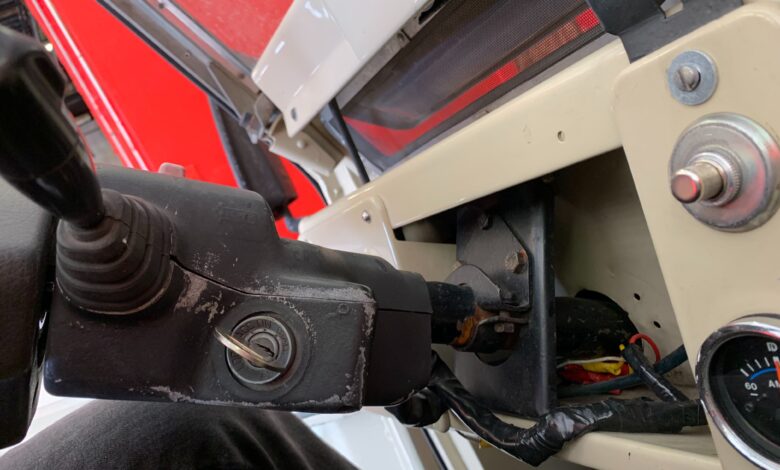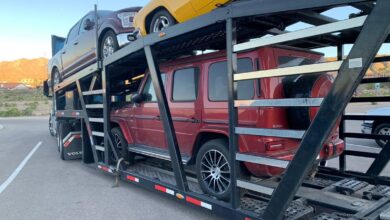Pre-Purchase Inspections

A pre-purchase inspection is generally important. I say generally, because if you have a reputable auction house or reputable dealer, they are putting their name on the line with every car they sell. Dealerships do inspections themselves prior to listing cars for sale, and auctions houses do their own due diligence.
With an auction, the inspection process is generally done by reviewing documentation and photos for the vehicle to confirm it’s a numbers matching classic.
If you do not already have an established relationship with a dealer, a pre-purchase inspection is a must. Also note, that any reputable dealer will welcome you to have your own inspector come by and look at the car. If they take offense to you asking for it, that’s a red flag!
Finding a Certified Inspector
I do not recommend using the inspector recommended by the dealership. This is a conflict of interest. While many local dealerships are familiar with inspectors (the same as local realtors are familiar with home inspectors), inspectors have a duty to provide you as the prospective buyer everything they learn about the vehicle.
Fortunately you can find an inspector in pretty much any city in the country via a Google search. Typically most of the larger dealerships are in well populated areas so you shouldn’t have to worry about paying extra travel costs for an inspector. But if you are looking at a car in a rural area, most inspectors are willing to travel.
You can also use these two nation wide inspectors who contract with local inspectors.
What does a pre-purchase inspection consist of?
A good pre-purchase inspection is more than just a review of photos, documentation, and a kick of the tires.
An inspection consists of the following:
- Verify VIN numbers and engine and transmission serial numbers are all matching. This requires knowledge of where these serial numbers have been stamped on the vehicle, and looks for indications that they’ve been illegally modified.
- Verify the vehicle is not a restoration from a salvage title, does not have previous flood damage, fire damage etc.
- Reviews exterior condition for signs of undisclosed body work, damages, poor quality paint touch ups, etc.
- Inspect for frame damage. A bent frame or rusted frame can be not only a big problem when it comes to resale, it can also be dangerous.
- Poor quality mechanical repairs. Any repairs with duct tape will be picked up by your inspector! Hopefully all repairs were preformed with correct parts.
- Check for oil/fluid leaks.
- Poor quality electrical repairs or modifications. It’s not uncommon for a “do it yourself” job to add electrical equipment. Unfortunately if not done correctly, it can cause grounding issues, fuse issues, and engine code faults.
- General review of interior condition, original upholstery, repairs, signs of previous smoker, etc.
- General review of operational equipment.
- Driving test to inspect smooth shifting transmission, engine not overheating, no fluid leaks, etc.
An inspection is comprehensive, and will come with a report. Whether your purchasing a $25k car, a $250k car, or a $2.5mil car, you need documentation. An inspection is part of the documentation that will help protect your investment and give you confidence in your purchase.
If you are a purchasing a very specialized car, specialized inspectors will travel to do pre-purchase inspections. This is typically reserved for vehicles $500,000+.
What happens if you find problems in the inspection?
The question here is whether or not the problems are deal breakers. A vehicle that you thought was numbers matching but is not, may no longer appeal to you. Or perhaps it gives you an opportunity to buy the car you wanted at a discount. Mechanical issues like oil leaks or fault equipment can generally be repaired by the dealer prior to purchase. While a previous smoker and a nicotine stained interior may be a deal breaker.
Any pre-purchase inspection gives you an opportunity to negotiate with the dealer, and most dealers will work with you as they want to sell cars that are in good condition. A happy buyer is good for any dealership.
Final Thoughts
Do yourself a favor and get that pre-purchase inspection. It’s a small cost for a big piece of mind. It gives you confidence in your purchase and protects your investment when it comes to resale. If you decide NOT to get a pre-purchase inspection, but the person you sell the car to does, and that’s when you find something wrong, you’ll be disappointed.
Do get that inspection and make that purchase fully informed!



Ross I’m a new Warrior Pro student of yours and really enjoy the content. I recently retired from the FDNY after 20 years. I also do paintless dent removal (for 27 years) and can help you out with any bodywork questions you may have. Love old cars and had a 65 Mustang fastback back in the day. I think your a great teacher and you helped me a lot. I would like to return the favor if I could. Have a great weekend.
Anthony
hey Anthony! Thank you for your service! I have a friend with is FDNY in the Bronx, you guys do an awesome job.